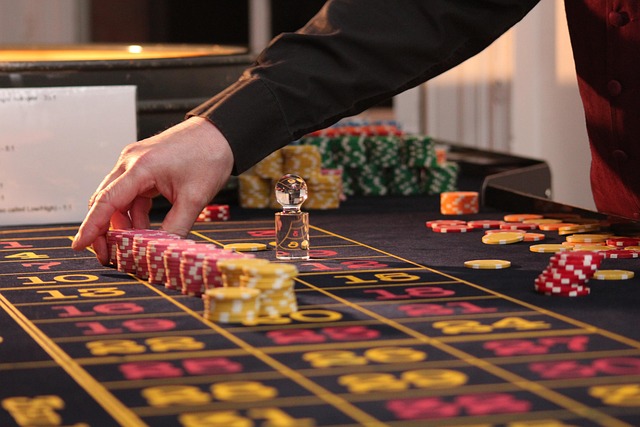Introduction
Being a professional gambler isn’t some Hollywood fantasy filled with tuxedos, high-stakes drama, and lucky streaks. It’s work. It’s patience. And it’s nothing close to chaos. The reality is far more grounded—more spreadsheets than smoke-filled rooms, more cold decisions than hot hands.
Professional gamblers operate in a space where outcomes are uncertain but preparation isn’t. They lean into math, not magic. They treat bankrolls like investments and losses like tuition. Most people think gambling for a living is a wild, risky ride. But for the pros, it’s structured, sober, repeatable.
In 2024, their stories matter more than ever. As risk becomes a normalized part of economic life—from crypto traders to platform creators—these gamblers offer rare insight into how to live with uncertainty while staying calm, sharp, and in control. In a noisy world chasing instant rewards, professional gamblers remind us that long-term wins require discipline, reflection, and a gut-level understanding of risk—not thrill.
This isn’t a call to hit the tables. It’s a reason to study the people who already live there—and thrive.
Who They Are
Meet the Pros: Backgrounds and Games of Choice
Professional gamblers come from a surprisingly wide range of backgrounds. Some were math students, others were former athletes or entrepreneurs. What unites them is a shared ability to thrive under pressure and make calculated decisions.
Here’s a snapshot of the gamblers featured in this piece:
- Alicia R. – Former actuary turned high-stakes poker player, known for her methodical style and tournament success.
- Derek V. – Once a day trader, now a blackjack specialist who uses card counting systems with extreme precision.
- Samir H. – Competitive eSports dropout who made a living through online betting strategies and in-play sports markets.
- Laura M. – Former casino floor staffer who transitioned to live dealer games and is now a consistent baccarat earner.
Traits That Set Them Apart
Forget the stereotypes—these gamblers don’t rely on luck or reckless risk. What they all share are the following qualities:
- Discipline – The ability to stick to a plan, even during losing streaks
- Mathematical skill – A deep understanding of odds, probabilities, and expected value
- Emotional control – Staying level-headed when emotions run high, especially during tense bets
- Strategic thinking – Planning moves ahead of time and adjusting to new patterns quickly
These traits aren’t innate—they were built through practice, study, and sometimes hard-earned failure.
How It All Started
Most pros didn’t aim to be gamblers from the start. Their entry points into the gambling world were unique, but often followed a similar arc:
- A casual hobby turns serious – What started as a weekend poker game or online blackjack experiment evolved into a disciplined pursuit
- A mentor or turning point – Many credit a mentor, forum community, or key book with changing their mindset and approach
- Early wins—and early losses – Some had beginner’s luck, but all learned quickly that consistent profit comes only with skill
These early experiences, mixed with curiosity and competitiveness, laid the foundation for careers that defy the norm.
Building Their Skillset
For professional gamblers, success isn’t a matter of instinct or luck—it’s the result of aggressive study and relentless refinement. Becoming a master at the game requires time, tools, and a tactical mindset that goes far beyond gut feelings.
Studying the Odds
Understanding probability and risk is central to gambling at a professional level. These individuals treat each hand, spin, or bet decision like a math problem waiting to be solved.
- Probability & Statistics: Knowing the odds isn’t optional—it’s foundational.
- Game Theory: Strategic thinking allows pros to anticipate opponents and control outcomes.
- Data Analysis: Many spend hours reviewing past games to identify patterns and gaps in performance.
They don’t just play—they study, simulate, and adapt.
Habit Over Hype
Contrary to popular belief, successful gambling isn’t flashy. Winning long-term hinges on discipline, not drama. Pros have a laser-focused approach to routine that steadily compounds into results.
- Set routines before, during, and after sessions
- Regular review and journaling of decisions made
- Continuous learning through books, courses, and mentors
Their edge comes through consistency—and a refusal to rely on luck.
Learning Through Losses
No one starts as an expert. Every professional gambler has stories of errors that hurt. But instead of being discouraged, they treated each loss as a teacher.
- Underestimating variance early on cost many their bankrolls
- Chasing losses or making emotional decisions led to avoidable setbacks
- Ignoring bankroll management proved one of the most expensive mistakes
What separates them from the rest is how they responded:
- They analyzed where they went wrong
- They changed their habits and strategies
- They invested in tools and education to avoid repeating mistakes
In the end, every misstep was leverage for growth.
Turning Points
Every professional gambler has a line in the sand—the moment they stopped being a hobbyist and turned into something more. And it rarely came with fanfare. For some, it was a crushing loss that forced a serious recalibration. One poker player we interviewed dropped half his bankroll in a high-stakes weekend and realized he’d been playing emotionally, not strategically. That weekend broke his ego and rebuilt his discipline. He started studying variance and bankroll theory like his life depended on it—because it kind of did.
Another gambler found his turning point in a string of small but consistent wins. They weren’t flashy, but the pattern revealed control—proof that his system was working. That’s when he made the decision to go pro. No champagne, no viral moment, just a quiet shift into treating gambling like a business.
These stories have a common thread: someone hits a wall, stares at it long enough, and then either climbs over—or walks away. The ones who made it through didn’t rely on streaks of luck or cinematic jackpots. They adjusted when it hurt, doubled down on discipline, and walked back from the edge smarter than before. It’s not glamorous. Success here looks more like years of spreadsheets and self-control than glitz or swagger.
Risk Management and Mental Toughness
Variance is part of the game. So is losing. Pros don’t panic when the cards stop falling their way—they prepare for it. The best gamblers treat risk like engineers: it’s calculated, managed, and isolated. They use disciplined bankroll systems, often setting strict boundaries on how much they stake per session or game, no matter how hot (or cold) they’re running. This protects their capital and shields their emotions.
To navigate the swings, top players lean on tools. Tracking software helps them log hands, spot leaks, and see the long view. Some work with personal coaches who aren’t just technical experts—they’re accountability partners who keep ego in check and decision-making sharp. Others rely on mental game apps or journaling to stay grounded.
Above all, pros know that tilt is a killer. When frustration creeps in—and it will—they step back. Some meditate. Some take walks. Some just shut the laptop, no questions asked. The goal isn’t to avoid stress but to control the reaction. That’s the edge.
It’s not about being fearless. It’s about being stable. When the numbers dip or the luck dries up, resilience is the trait that separates career grinders from weekend dreamers.
Life Beyond the Tables
Professional gamblers live in a world built on margins, math, and mental stamina—but the real game is longevity. The ones who last don’t grind 24/7. They schedule time off. They split their lives into clear segments: play, prep, and personal. Because if you burn out, you lose your edge.
Relationships, for starters, are a challenge. Most pros admit they’ve had to rebuild or recalibrate how they connect with friends, partners, and family. The hours are weird. The stakes are isolating. The pressure doesn’t switch off when the computer does. So the ones still standing are intentional—dinner without the phone, regular therapy, reminding themselves that not everything is a wager.
Health, too, gets real. Sitting for long hours, sleeping in bursts, and the adrenaline spikes from swings can wreck a body. A lot of seasoned players now train like athletes—mobility work, no booze during tournament runs, strict routines.
And as for the long game? Most aren’t clinging to cards and felt forever. They think in decades. They invest profits into startups, real estate, or coaching businesses. A few are writing books or building platforms to teach game theory. The endgame isn’t just making enough money to walk away. It’s building the freedom to choose their next move—on or off the felt.
Advice for Aspiring Players
Ask any seasoned pro, and they’ll tell you straight: if they could do it all again, they’d be more patient, more disciplined, and more data-driven from day one. The early days are often marked by ego, impulse, and the illusion that a hot streak is the same as skill. One player said it best—”I treated it like a lifestyle before I treated it like a job. Big mistake.”
The odds of going pro? Slim. Brutally slim. For every hundred players who try to make it full-time, maybe one gets there—and fewer stay the course. The variance alone washes out most newcomers. The game rewards the long-term thinkers, the ones playing the player, not just the cards.
That said, tools and habits level the field. Deep study of probability theory, obsessive review of hand histories, and using tracker software to spot tendencies—this is what separates noise from professionals. Morning routines, meditation, exercise, journaling—yes, it matters. Not because it’s glamorous, but because consistency and clarity are oxygen in high-variance environments.
If you’re serious, build your edge like a craftsman. And remember, history is full of slow starters who found their rhythm. For inspiration and tough lessons, check out From Bankruptcy to Jackpot: Redemption Stories.
Closing Thoughts
Professional gambling is entering a new era—a place where analytics meet instinct, and decision-making becomes faster, sharper, more data-driven. Technology is changing everything. Tools for tracking performance, assessing odds, and spotting patterns are now staples, not luxuries. But here’s the kicker: None of it guarantees success. The tech helps, but mindset still runs the show.
The gamblers we spoke with are clear on one thing: this life isn’t for everyone. It’s not glamorous, and it’s not about chasing a quick score. It’s a grind. A mental game played over years, not weekends. The stakes—emotional, financial, even social—are high. As one pro put it, “It’s not supposed to be easy. That’s what filters people out.”
Luck shows up. But it doesn’t stick around. What does? Value—knowing when to bet, when to fold, and when to walk away entirely. Mindset powers that ability. The best in the game aren’t there because they’re fearless. They’re there because they’ve built mental stamina over time—and they understand that risk is a tool, not a thrill ride.
In a future shaped by smarter systems and faster decisions, nothing beats a steady nerve and a sharp mind.


 Thalara Kelricsona is the co-founder of mediagamblesaga and a key voice in its content direction. With a unique blend of creativity and industry knowledge, she explores the intersection of technology and user experience in gambling. Her forward-thinking approach ensures the site remains a trusted resource for readers seeking clarity on the fast-changing digital gambling landscape.
Thalara Kelricsona is the co-founder of mediagamblesaga and a key voice in its content direction. With a unique blend of creativity and industry knowledge, she explores the intersection of technology and user experience in gambling. Her forward-thinking approach ensures the site remains a trusted resource for readers seeking clarity on the fast-changing digital gambling landscape.

